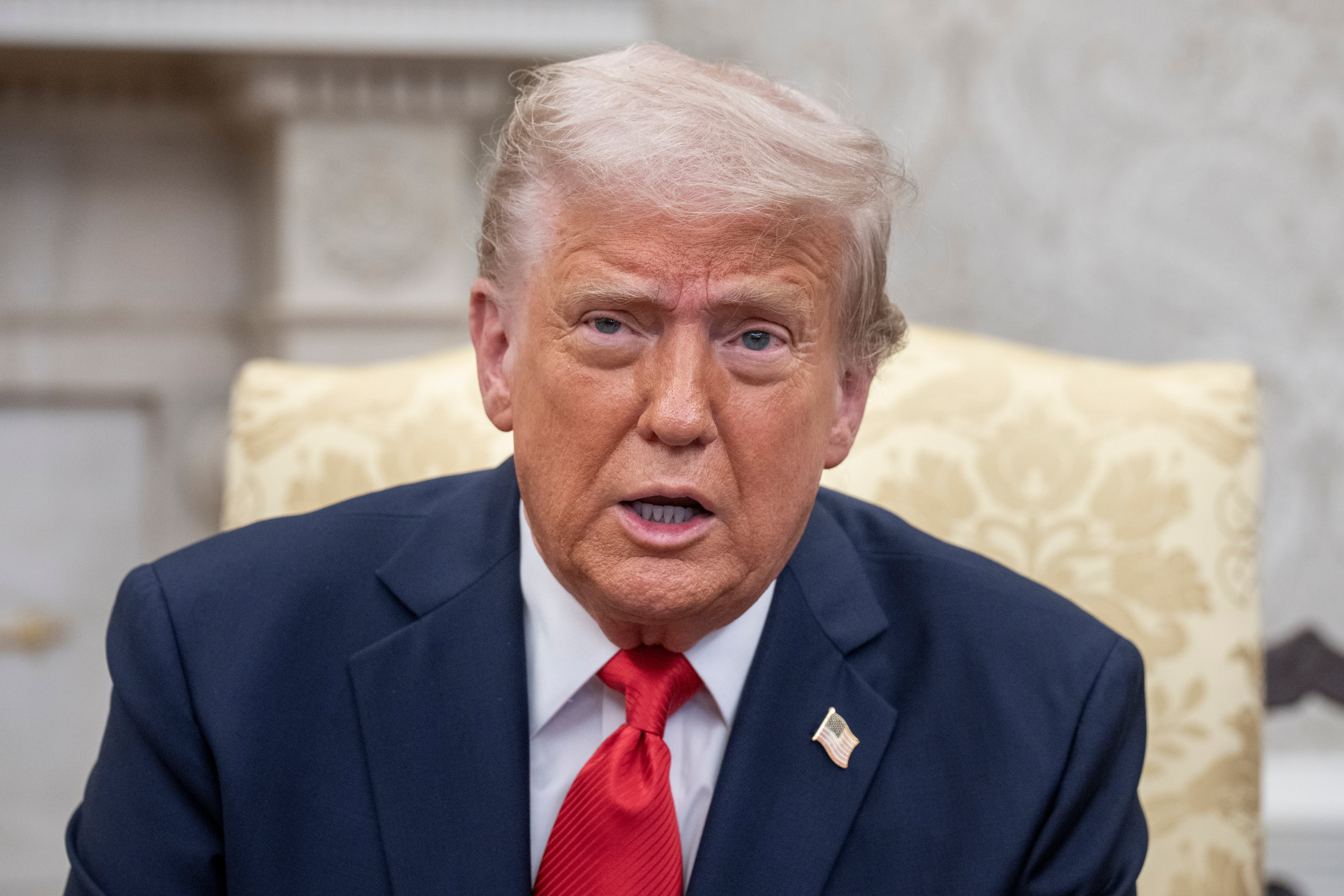Pharmaceutical bosses and the government are racing to stop Donald Trump from slapping tariffs on medicines in a move that would significantly impact Britain’s multibillion-pound industry.
The US president has warned he will impose a 25 per cent levy on foreign drugs, which would devastate UK giants GlaxoSmithKline and AstraZeneca.
America is by far the largest market for the firms, making up 40 per cent of AstraZeneca’s revenue, worth more than £20bn.
The government held a dinner with pharmaceutical chief executives on 2 April as Mr Trump unveiled his “Liberation Day” levies on the world.
One government source told The Times: “We’re all just reacting to whatever comes out of the White House but I can’t see a world where we wouldn’t want to protect one of our biggest export markets and we wouldn’t include that in discussions.”
Meanwhile, the Financial Times reported that Johnson & Johnson boss Joaquin Duato told a call of analysts on Tuesday the tariff could lead to medicine shortages. “There’s a reason why pharmaceutical tariffs are zero. It’s because tariffs can create disruptions in the supply chain, leading to shortages,” he said.
The British embassy in Washington is believed to be pushing for the UK to be exempted from any tariffs on pharmaceuticals, alongside US-based trade body the Biotechnology Innovation Organisation.
Most countries, including the US, have for years exempted drugs from tariffs, partly thanks to a 1995 World Trade Organisation (WTO) agreement aimed at keeping medicines affordable.

Pharmaceuticals are currently exempt from a baseline 10 per cent tax Mr Trump has placed on goods entering the US, but the US president has previously said: “We don’t make our own drugs, our own pharmaceuticals – we don’t make our own drugs any more […] all I have to do is impose a tariff. The more, the faster they move here.”
On Monday, Mr Trump said he expects to impose tariffs on imported pharmaceuticals in the “not-too-distant future”.
But JD Vance raised hopes of Britain being protected from the worst of Mr Trump’s wrath, highlighting the president’s affinity for the royal family and stressing the US was “working very hard” on what would be a “great” trade deal.
In an interview with Unherd, the vice-president said: “The president really loves the United Kingdom. He loved the Queen. He admires and loves the King. It is a very important relationship. And he’s a businessman and has a number of important business relationships in [Britain]. But I think it’s much deeper than that.
“There’s a real cultural affinity. And, of course, fundamentally, America is an Anglo country.
“I think there’s a good chance that, yes, we’ll come to a great agreement that’s in the best interest of both countries.”
Minister Lilian Greenwood stressed on Wednesday that pharmaceuticals are “very important” to the UK and said she hoped Britain would strike a trade deal with the Trump administration leaving no tariffs in place.
She told Times Radio: “We know how important the life sciences sector is in the UK ... Pharmaceuticals, obviously, very important to us. And that’s sure to be part of the discussions that we’re having on a trade deal, as is the UK automotive sector. And we, as a UK government, are doing all we can to protect those British industries.
“Of course, we’d be aiming for there to be no tariffs. But that’s part of a negotiation.”
The head of the University of Birmingham’s flagship life sciences cluster warned any tariff on drugs could lead to supply chains collapsing and patients suffering.
Professor Gino Martini, who runs the business innovation facility Precision Health Technologies Accelerator, told The Times: “It is a multi-site, multi-country supply chain and anything which hampers that could result in unintended consequences for patients, including the availability of medicines. We do not want patients to suffer.”
A government spokesperson said: “This government is committed to acting in the best interests of the UK and for people’s jobs and livelihoods.
“We continue to work across government on trade matters including the announcements from the US.
“We are engaging widely with those who stand to be affected by any tariffs, including the pharmaceutical sector.”
Starmer warned children will be at risk if he agrees US free speech demands
Zuckerberg cozied up to Trump to settle his FTC lawsuit for less: report
What is happening to Social Security under Trump as Biden condemns president’s plans
Service members killed in ‘civilian vehicle’ near southern border
British tourists banned from bringing meat and cheese back from Europe
‘How dare the US attack the UK’s free speech’ Readers call out trade deal demands







